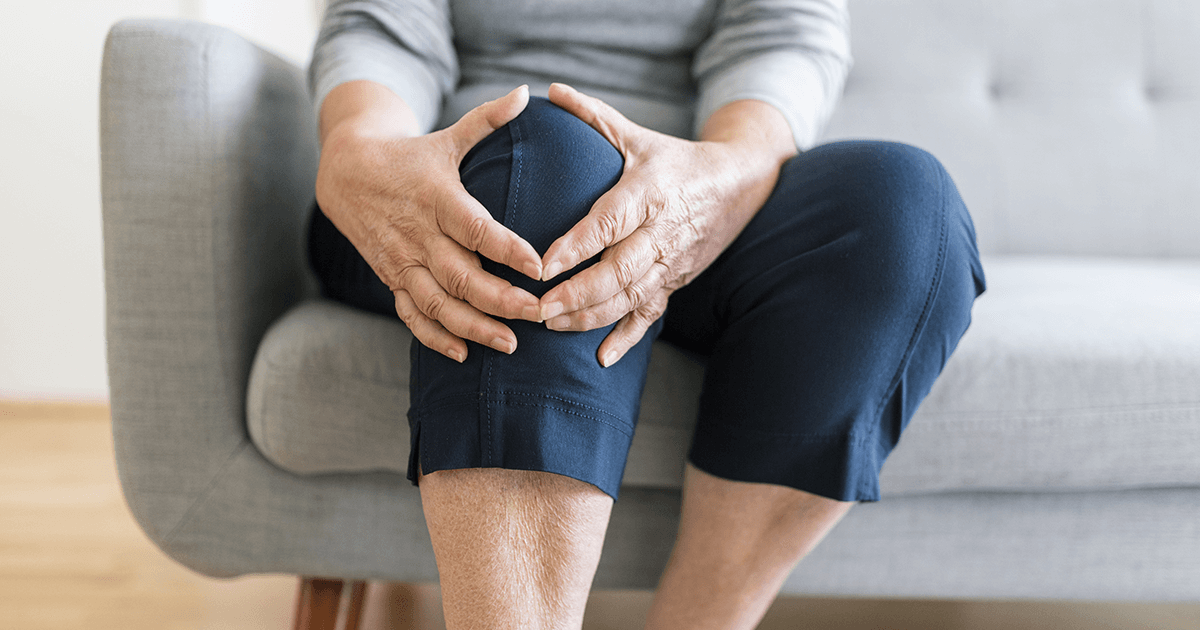
Millions of people in the United States are living with a musculoskeletal disease or disability. This can range from fractures and tendonitis to rheumatoid arthritis and osteoarthritis requiring knee replacement and other advanced orthopedic procedures. These conditions create challenges for both patients and caregivers and they are pervasive. According to the American Academy of Orthopedic Surgeons (AAOS), one out of two persons in the United States over 18 years of age and three out of four people over 65 have experienced some form of musculoskeletal disease. As the U.S. population continues to age, issues around orthopedic care at home will be even more significant.
However, advanced treatments and home care empower patients to recover and resume active lives. Although complete recovery isn’t always possible, mobility aids empower orthopedic patients to manage daily life and pursue their interests.
Caregivers and patients can navigate home recovery from musculoskeletal conditions with the following tips and tools.
Types of Orthopedic Conditions
There are many types of orthopedic disorders that require special care and mobility aids. Some conditions include weeks of recovery at home and some are chronic conditions that require lifelong management. The following are some common types of orthopedic and musculoskeletal disorders:
Fractures
A broken bone can happen to anyone at any age. Recovery time depends on the type of fracture involved and the age and general condition of the patient. Fracture healing requires immobilization, often with a cast, or surgery for stabilization with pins or rods. Depending on the type and severity of the fracture, healing can take up to a year.
Joint Deterioration
Conditions such as rheumatoid arthritis, can occur at any age but is most common in people 30 to 50. Osteoarthritis, which most often affects those over 50, causes increasing pain and limits mobility. Today’s orthopedic advances include replacing injured or worn-out joints to improve mobility. The most common types of joint replacement are knees and hips. It can take up to a year to recover completely from joint replacement surgery.
Back Problems
Arthritis can attack the vertebrae as well as joints, and back pain becomes more common as people age. Physical therapy is often required and orthopedic surgery can also bring relief.
Tendon and Soft Tissue Damage
Inflammation of tendons and ligaments are painful and can impact mobility. These include repetitive stress injuries such as carpal tunnel syndrome, tennis elbow, shoulder rotator cuff injuries and more. These conditions can require physical therapy and sometimes surgery. Torn ligaments or a torn meniscus in the knee usually require surgery and weeks of recovery.
Paget Disease of the Bone
After arthritis, this is the most common disorder affecting people over age 50. It’s a chronic condition that causes bones to become enlarged and deformed, as well as fragile. It is typically treated with physical therapy although some conditions may require orthopedic surgery.

How to Prepare for Orthopedic Recovery at Home
Following doctor’s orders is key in orthopedic care. Eating a healthy, nutritious diet is essential as is getting plenty of rest and staying hydrated. Physical therapy is crucial for recovery after joint replacements, soft tissue injuries, and fractures. HonestMed.com carries a wide range of products that cover all aspects of recovering from or living with an orthopedic condition. The following are some tips and products to aid both caregivers and patients:
Products Designed for Orthopedic Care
Make sure there are mobility aids and other products available so that those with orthopedic conditions can perform daily tasks as independently as possible. The following are some products that will help:
- Crutches: If the patient is suffering from a lower body fracture or sprained ankle, the doctor will prescribe crutches to use during the healing process. HonestMed has a wide range of crutches and crutch accessories to help patients as they heal.
- Walkers and Canes: Using a walker is often part of recovery from hip and knee replacement as well as useful for those who suffer from chronic orthopedic conditions such as arthritis. Those recovering from surgery often graduate from using a walker to relying on a cane. HonestMed offers a wide range of both walkers and canes that are adjustable and can include built-in seats.
- Raised Toilet Seats: After hip or knee replacement surgery, getting up and down from a seated position is difficult. A raised toilet seat allows the recovering patient to use the bathroom with ease.
- Grab Bars and Shower/Bath Seats: Bathing aids are very important to anyone with mobility challenges. Wall Grab bars that can be easily installed in the shower or bath help orthopedic patients bathe with more independence. There are also bed grab bars that make getting in and out of bed easier for orthopedic patients. Shower and bath seats are also very helpful for recovering patients or elderly loved ones who may be unsteady while in the shower or bathtub..
- Reachers/Grabbers: Retrieving items that aren’t handily accessible can put a strain on orthopedic patients and could cause them to lose their balance and fall. Using a tool that extends the reach so that items are readily available can prevent accidents and also help orthopedic patients maintain their independence.
- Hip and Knee Kits: HonestMed offers convenient hip and knee kits that include several mobility aids including a reacher/grabber, a long-handled sponge for bathing, a tool that helps patients put on their socks and a long shoe horn.
Stay Ahead of Orthopedic Pain
As any health professional will tell you, it’s easier to deal with pain before it becomes severe than to try and relieve intense pain while it is happening. Prescription pain medication is quite common for patients immediately following hip or knee replacement surgery. However, doctors typically want patients to progress to other forms of pain relief as soon as possible. The following are some pain relief products to have on hand for orthopedic home care.
- Hot and Cold Packs: Applying hot and or cold packs to arthritic joints and strained muscles is a tried and true method for relieving pain. Cold packs are frequently used after surgery to reduce swelling and enhance healing. A general rule of thumb is to use ice for acute pain that involves inflammation and swelling, and heat when there is muscle pain or stiffness.
- Braces, Splints and Support: If the joint or soft tissue pain is chronic or the patient is still recovering from surgery or an injury, support can be gained by using a brace or a splint. This is especially vital when the patient will be on their feet for an extended period of time or pursuing a sports activity. HonestMed has stabilizing braces for knees, elbows, ankles and wrists, as well as support for lower back pain.
- Compression Gloves and Compression Socks: Compression gloves and socks work to relieve pain by applying pressure that increases blood flow and minimizes swelling. This can help prevent the inflammation that causes joint pain for patients with rheumatoid arthritis.
- Over-the-Counter (OTC) Pain Relievers: There is a variety of relievers both oral and topical. Oral pain medications such as acetaminophen and ibuprofen are ideal for mild to moderate pain following surgery, injury or to manage chronic pain. Topical pain relievers such as Voltaren, generically known as diclofenac sodium, can be applied to sore joints to ease the pain of arthritis.

Adopt Healthy Habits
Dealing with orthopedic pain such as arthritis can be daunting for both patients and caregivers. The following are some general lifestyle tips for advancing recovery and living more comfortably with an orthopedic condition:
- Learn About the Condition: Orthopedic patients should not be hesitant to ask their doctor for information on their condition and also do some research of their own to find out as much as they can about their disorder or injury. This will help achieve a deeper understanding of the health professional’s directions and can also help mitigate any fears the patient may have.
- Establish Good Daily Routines: Arthritic patients can help their condition by employing gentle movements such as stretching but they shouldn’t overdo activity. Physical therapy can help by showing patients how to sit, stand and move in a way that maintains good posture and mitigates pain. Maintaining a healthy weight will help any orthopedic patient take some strain off joints and muscles. Weight management doesn’t have to be drastic but can be achieved by making incremental daily changes.
- Exercise Moderately: Exercise can benefit anyone and it is especially helpful for orthopedic patients including arthritis sufferers. However, it’s important that patients don’t push themselves too hard. Low-impact workouts such as using an elliptical trainer or attending a yoga class are good choices. Avoid high-impact activities such as running, jumping, or playing tennis. Orthopedic patients should always consult a physical therapist or other health professional before pursuing a workout routine.
- Use Pain Relief Wisely: Pain relief is very important, but having a measured approach is best. Follow the doctor’s directions and treat pain before it becomes severe. Use products such as OTC pain relievers, hot and cold packs and topical medications to stay ahead of pain.
- Don’t Forget Emotional Wellbeing: Dealing with a chronic condition or recovering from a hip or knee replacement surgery impacts both physical and emotional health. Keeping a positive frame of mind can go a long way in helping patients who are recovering from or living with a chronic orthopedic condition. Consulting a cognitive behavioral therapist or learning meditation techniques can help patients keep a positive outlook and can aid in healing and maintaining a healthy life balance.
HonestMed is Here to Help
Caring for someone with an orthopedic condition requires teamwork. It’s important to always follow healthcare professional instructions to aid recovery. HonestMed offers a wide range of products to help patients and caregivers control pain, aid in mobility and help orthopedic patients live as independently as possible. For more information on arthritis, read through our blog on compassionate caregiving for arthritis patients. You can also get more information on mobility aids for seniors from our blog.
Whatever your healthcare needs, HonestMed is here with the products you need to provide the best care possible. Learn more by speaking to an HonestMed Care Specialist at (833) 933-2323. We’re here to provide you with product knowledge, support, and expertise to ensure you get the right products for your unique needs and budget. Check out our other published articles on caregiving and more!




